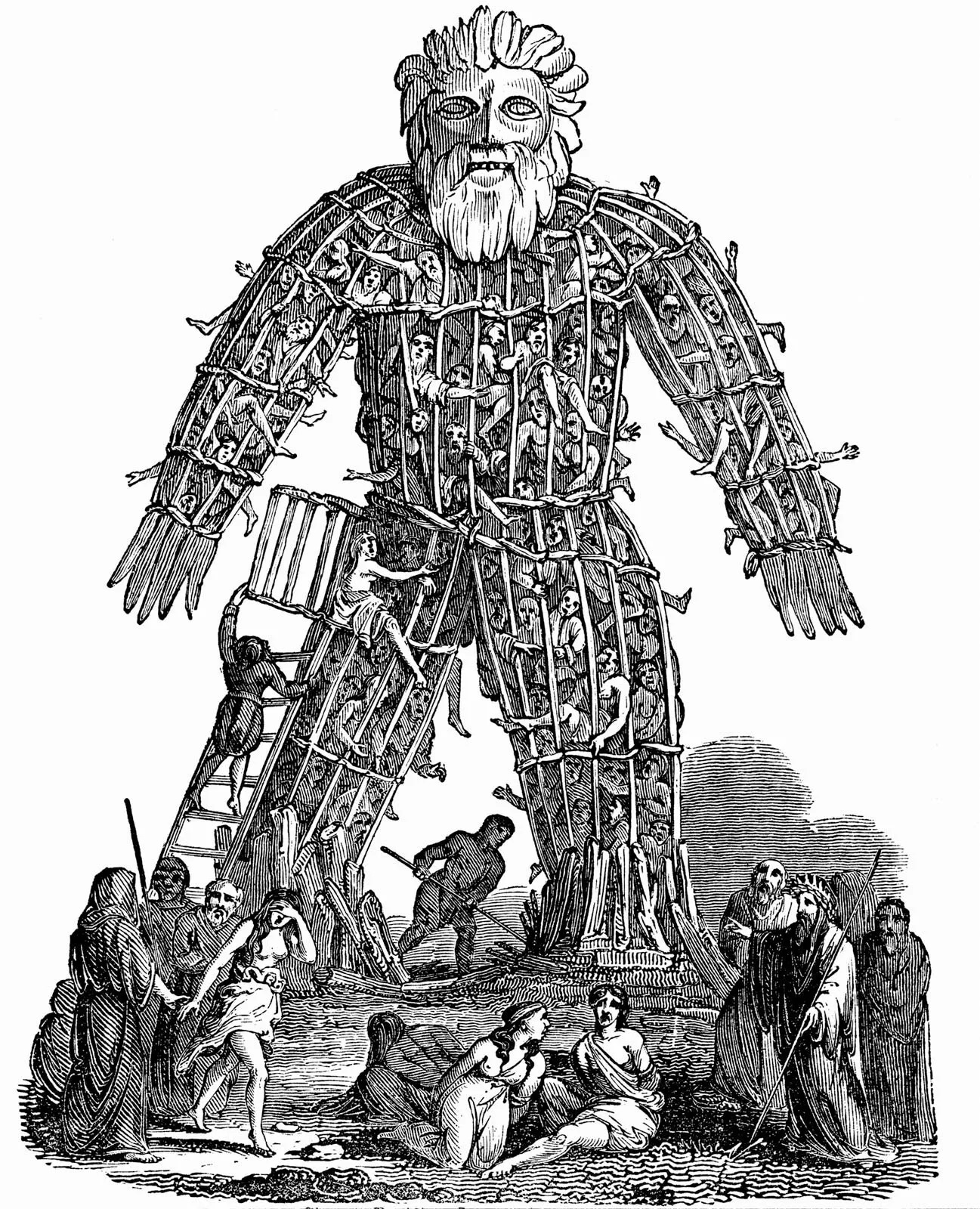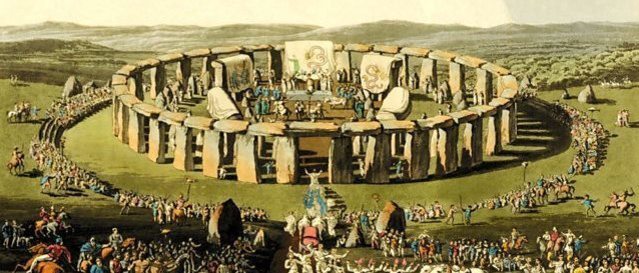The Druids According to Caesar
Posted on 17th February 2021
Julius Caesar, who had himself once been Pontifex Maximus in Rome was fascinated by the Celtic Priesthood and those Druids, he encountered during his conquest of Gaul 58 BC to 55 BC and his brief military excursions to Britain in 55 BC and 54 BC.
He wouldn’t be the last Roman to be so enamoured but in his Commentaries on the Gallic Wars he provides us with our most vivid account of them, of their status and role in Celtic society while writing of them in tones that can best be described as admiringly scornful as if he may have been a little in awe of this mysterious cult:

The Druids are in charge of all religious matters, superintending public and private sacrifices, and explaining superstitions. A large crowd of young men, who flock to them for schooling, hold the Druids in great respect. For they have opinions to give on almost all disputes involving tribes or individuals, and if any crime is committed, any murder done, or if there is contention about a will or the boundaries of some property, they are the people who investigate the matter and establish rewards and punishments. Any individual or community that refuses to abide by their decision is excluded from the sacrifices, which is held to be the most serious punishment possible. Those thus excommunicated are viewed as impious criminals, they are deserted by their friends, and no one will visit them or talk to them to avoid the risk of contagion from them. They are deprived of all rights in court, and they forfeit all claim to honours.
There is one arch-of supreme power.
On his death, he is succeeded either by someone outstanding among his fellows, or, if there are several of equal calibre, the decision is reached by a vote of all the Druids, and the election is sometimes managed by force.
At a fixed time of year, they assemble at a holy place in the territory of the Carnutes, which is thought to be the centre of Gaul. Anyone with a grievance attends and obeys the decisions and judgments which the Druids give. The general view is that this religion originated in Britain and was imported into Gaul, which means that the whole Gallic nation is virtually a prey to superstition, and this makes the serious invalids or those engaged in battle or dangerous exploits sacrifice men instead of animals. They even vow to immolate themselves, using the Druids as their ministers for this purpose. They feel that the spirit of the gods cannot be appeased unless a man's life is given for a life.
Public sacrifices of the same sort are common.
Another practice is to make images of enormous size, with the limbs woven from osiers.
Living human beings are fitted into these, and, when they are set on fire, the men are engulfed in the flames and perish. The general feeling is that the immortal gods are better pleased with the sacrifice of those caught in theft, robbery or some other crime. But if a supply of such criminals is lacking, then they resort to the sacrifice of completely innocent victims.
Tagged as: Ancient & Medieval, Fact File
Share this post:





